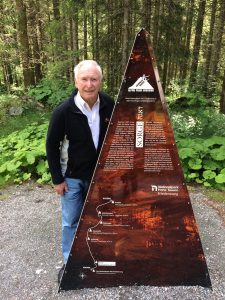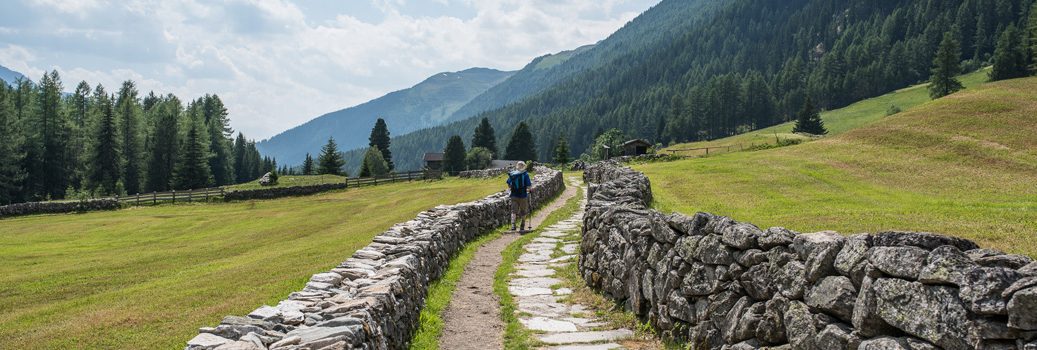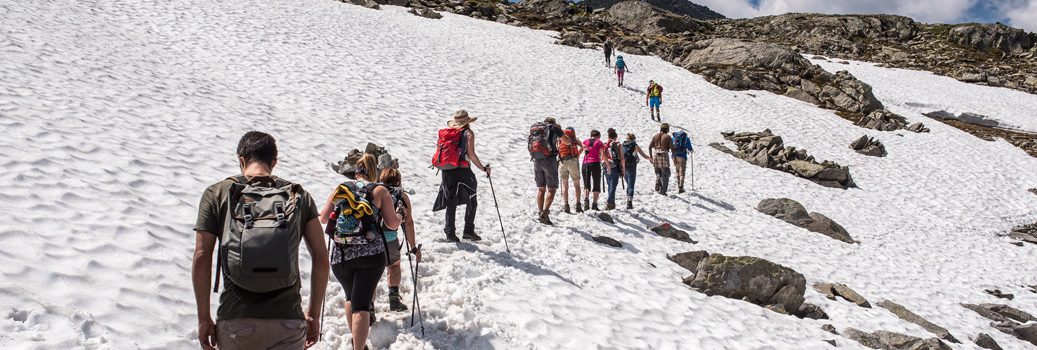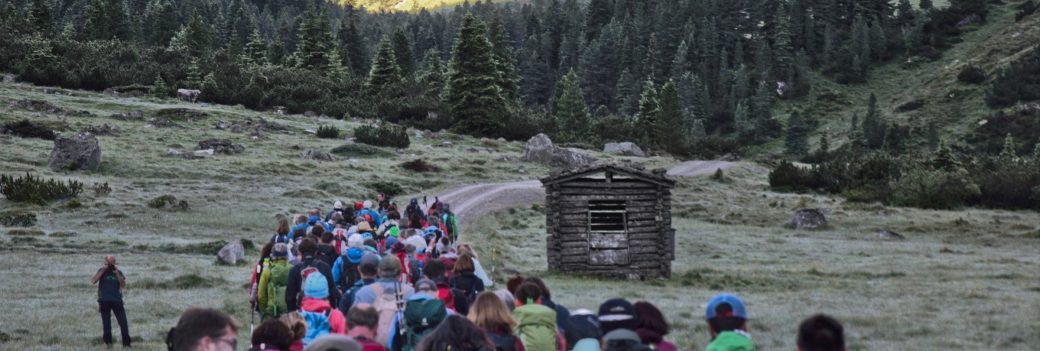by Antonia Winsauer on behalf of the entire APC team

The first time I met Ernst in person was on a Friday afternoon in June 2019. He had invited Robert and me to his home to discuss a possible handover of APC’s executive duties. We had never met before but were already on a first-name basis and hugged tightly before we even entered his house. Alongside then-board member Norbert Wallner, he told us over pizza boxes at the dining table and later over coffee in the garden about Alpine Peace Crossing and about the association‘s work, for which a new board was now being sought. A pinch of youthful recklessness or courage on our part, Ernst’s engaging personality, persuasiveness and trust in both of us and in the rest of the new board, and above all the conviction of everyone involved in the importance of the cause ensured that the following autumn we left the first joint general meeting as a new, young board team with Ernst as honorary president.

As the only member of the new board living in Vienna at the time and “deputy of his successor Robert Obermair”, as Ernst always emphasized the official functions of the association, I went to appointments with him, got to know friends of the association and those of Ernst (the two categories overlapped), shook hands at embassy receptions, even accompanied him once to his box in the Vienna Konzerthaus and was able to witness first-hand: He was on a first-name basis with everyone, whether they wanted to or not, and although this sometimes came off as a little too personal, this idea was quickly dispelled because everyone immediately noticed: No one could escape the force of nature that was Ernst Löschner!

Fear of contact was a foreign concept for Ernst; He rushed up to people, hugged, kissed and invited them, without bothering about their background or social position. With Ernst, it quickly became transparent what he was fighting for and who he was fighting for. He used his privileges, contacts and all his strength to create better living conditions for the less privileged, particularly refugees. But also to achieve an appropriate memorial for those persecuted and murdered in the Shoah, to remember together with survivors and descendants. He organized and financed legal advice and promoted musical talent, for example by lending his house key in his absence to a pianist who had to leave his piano behind in his home country, Ernst gave him a chance to prepare for his entrance exam in Vienna with Ernst’s pianoforte.

Speaking of pianos: Just a few days before his death, he played the piano for our Israeli friends Leah and Rami Litani at his home. Now I’m watching the video Leah sent me of it, listening to Ernst play, and I feel immediately transported back to a day in March 2023, when we from Alpine Peace Crossing were given a tour of the Austrian Parliament together with other nominees on the occasion of the Simon Wiesenthal Award ceremony. The golden Bösendorfer grand piano, which was hotly debated at the time and has since been removed and which the then President of the National Council, Wolfgang Sobotka, had brought into Parliament, must have been on Ernst’s mind: As soon as the guide had led us into the room where the grand piano stood, Ernst pressed his phone into my hand, said “Take a video!”, moved towards the instrument, went around the barrier, sat down on the piano stool and started playing. Nobody could believe it, but nobody stopped him. Everyone listened.

Ernst was not afraid to stand up for his convictions and encouraged people to reconsider agreements that had been made if he had the impression that better ones were possible. Ernst always faced the world without a protective shield and was not afraid to talk about his own challenges and worries whilst being attentive to other people’s needs. He wrote emails at half past one in the morning because there weren’t enough hours in the day.

But Ernst was also someone who knew how to set his priorities correctly: As much as he was committed to social causes, he was first and foremost a family man. No pain, no doctor’s orders and no summer snowfall could stop him from starting and completing the memorial hike over the Krimmler Tauern to South Tyrol at the age of 80. But he dropped everything when he knew that his family needed him – especially his beloved wife Valdi.
In Yiddish, the term “mentsch” means more than just “human”. A “mentsch” has integrity, is tolerant, responsible, honorable and exemplary. And that’s how Ernst was.
We will miss our “Ehrenernst” very much.








